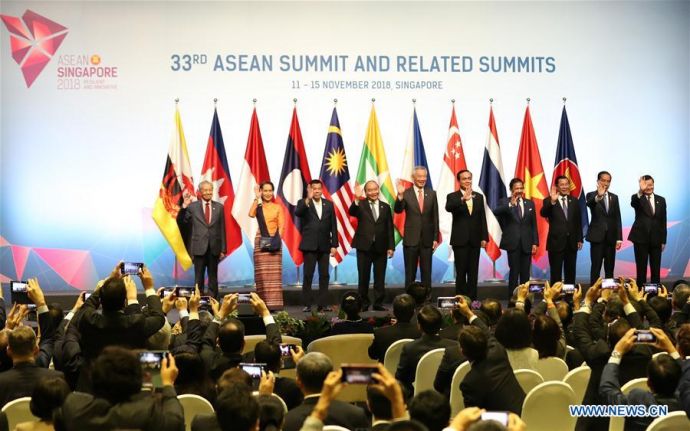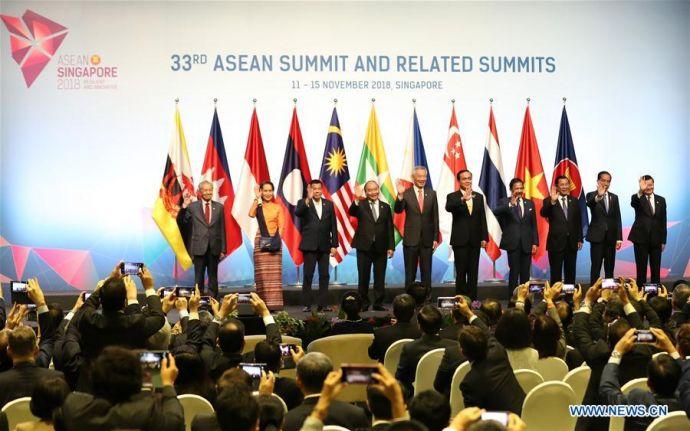
SINGAPORE, Nov. 14 (Xinhua) -- The 33rd summit of the Association of Southeast Asian Nations (ASEAN) opened here Tuesday with a call for upholding multilateralism and international cooperation.
The summit, gathering leaders of ASEAN's 10 member countries, will review ASEAN's achievements in the year 2018 in pushing forward community building and integration while mapping out a new course for the year ahead.
In a speech at the opening ceremony of the summit, Singaporean Prime Minister Lee Hsien Loong called on ASEAN members and partners to uphold multilateralism and international cooperation in future development and tackling common challenges including terrorism and climate change.
"The international order is at a turning point. The existing free, open and rules-based multilateral system, which has underpinned ASEAN growth and stability, has come under stress," Lee said.
He called on ASEAN countries to stay united and find common ground as past experiences proved that "ASEAN is greater than the sum of its parts."
During Singapore's chairmanship in 2018, ASEAN member countries have redoubled integration efforts and come up with concrete measures that laid the groundwork for "united, effective, and relevant ASEAN," he said.
ASEAN has reaffirmed commitment to multilateral trade and made substantial progress towards completing negotiations on the Regional Comprehensive Economic Partnership (RCEP), he added.
Lee also called for international cooperation in tackling non-traditional and trans-national threats, including terrorism and climate change.
"These common challenges are complex and unprecedented. We need to pool our ideas and resources to tackle these issues together...multilateralism remains an important basis for international cooperation and for the region's growth and stability in an interdependent and interconnected world."
Under the theme "Resilient and Innovative," the 33rd ASEAN summit will also sum up the bloc's achievements during 2018 in facing the growing uncertainties in the global strategic landscape as well as in tapping the opportunities arising from the digital revolution.
In the following days, related summits are also scheduled to take place, including the ASEAN+1 summits, ASEAN+3 (China, Japan and South Korea) Summit and the East Asia Summit.
Leaders of 10 ASEAN countries and six of its dialogue partners, namely Australia, China, India, Japan, South Korea and New Zealand, will meet for their second RCEP leaders' meeting on Wednesday.
Established in 1967, ASEAN groups Brunei, Cambodia, Indonesia, Laos, Malaysia, Myanmar, the Philippines, Singapore, Thailand and Vietnam.




 A single purchase
A single purchase









